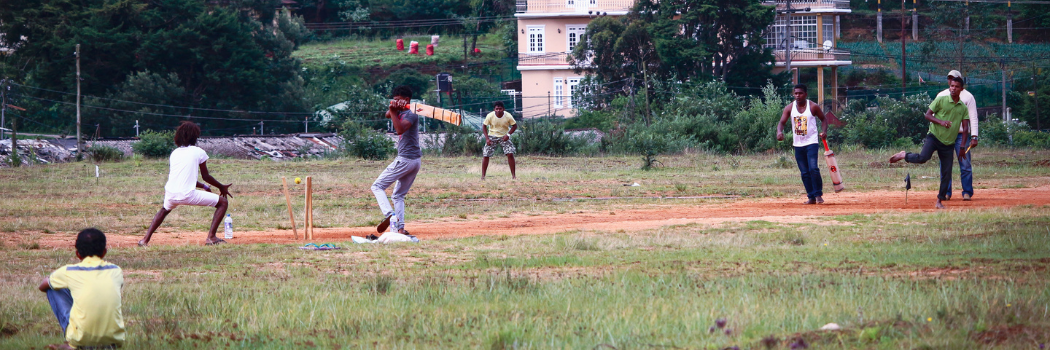
Since the end of Sri Lanka's civil war in 2009, several former international cricketers, politicians and NGOs have made claims that cricket is an important tool for reconciliation. On International Day of Peace, Dr Ben Hildred, from our Department of Anthropology, explains how his research considers the role of cricket in development and peace efforts across the country.
What exactly does your research look at?
To understand the place of cricket in people's lives, I carried out ethnographic fieldwork with a diverse group of people across Sri Lanka's capital Colombo. This 'cricket community' included amateur teams, coaches, professional clubs, schools, and NGOs. As the anthropology of sport encourages intensive participation in the sport under study, I spent most of my time playing for one amateur cricket club. Through this rigorous participation I came to understand the kinds of social structures that sport enables, and learned what this says about the potential for future change. Ultimately, my research interrogates the idea that sport can promote positive change.
What is the significance of cricket in Sri Lanka/just how big a sport is it in the country?
Cricket is the national passion in Sri Lanka, one of very few phenomena that is enjoyed across ethnic and religious divisions. Cricket was initially popular with elites from the ethnic minorities, which gave the national team of the 40s, 50s and 60s a very diverse character. This sense of diversity persists today despite the national team being predominantly populated by Sinhala Buddhists, the Sri Lankan majority.
Crucially, Sri Lanka won the Cricket World Cup as complete underdogs in 1996 – during the civil war – rocketing the national team to superstardom and increasing the popularity of cricket exponentially. Sri Lanka has since won another T20 World Cup in 2014, and regularly competes at the highest level. Sri Lankans are naturally proud of this elevated position on the global stage, and many believe cricket unites the country.
How has cricket been used to drive social change and peace?
A link between sport and positive social change is regularly made including by sportspeople, aid agencies and local governments. However, this link is rarely interrogated, with little emphasis on how sport can drive social change. Using sport for development goals and peace-building often involves merely providing more sport, which doesn't necessarily improve (or worsen) current conditions. Fortunately, a growing sub-field of academia is now critically assessing the link between sport and change to understand exactly how sport can promote positive outcomes.
Are there methods that have been used in cricket that could be applied in other countries?
Methods for using sport for change are still emerging. In my own work, I understood that the structures of sport emphasise individual responsibility to the wider whole (often 'the team'). This leads sportspeople to work within their social system rather than to question it. Simply put, players work hard to overcome the odds, rather than to change them. In my recent impact work in Sri Lanka, I held workshops with coaches across the island to understand how they can develop more reflective students, who are more critical about their social surroundings.






